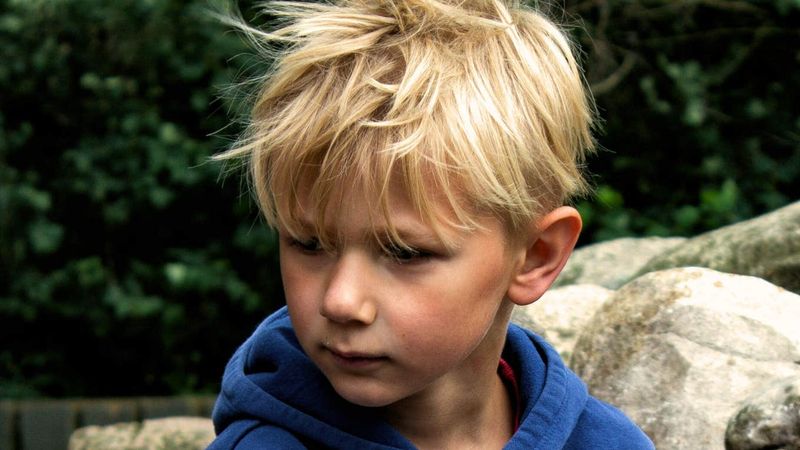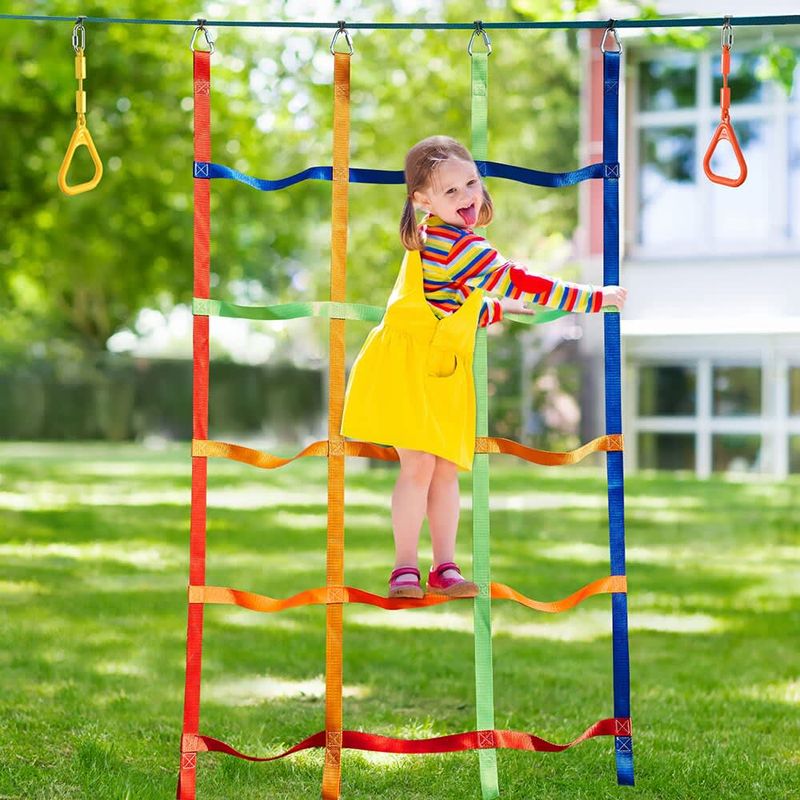Growing up lonely often leaves marks that resonate well into adulthood. This emotional solitude shapes a person’s interactions, relationships, and self-perception in subtle yet significant ways.
Those who experienced such isolation often share common threads of understanding, intricately woven into the fabric of their lives.
En feeling disconnected even in a crowded room to finding solace in silence, these experiences offer both validation and connection to those who recognize them.
1. Quiet Patterns That Never Really Left
Even today, the quiet patterns are your comfort zone. As a child, you often found yourself lost in patterns, whether it was the delicate weave of your grandmother’s quilt or the rhythmic tapping of rain against the window.
These patterns were not just distractions; they were companions, steady and unchanging in a world that felt bewildering.
This love for patterns has lingered; you find peace in the predictable, and it’s in such ordered sequences that you feel most at home.
2. You Apologized For Needing Anything
The feeling of guilt for needing anything was ingrained early. Every request felt like an imposition, whether it was asking for help with homework or more attention at the dinner table.
You learned to preface needs with apologies, a habit that persists today.
This apologetic stance comes from a deep-seated belief that your needs were burdensome, fostering an independent spirit that often masks your true vulnerabilities.
3. You Found Comfort In Being Invisible
Invisibility was your sanctuary. As a child, you discovered the safety in blending into the background, becoming a silent observer rather than an active participant.
Being unseen meant fewer demands, less scrutiny, and the freedom to explore your world at your own pace.
This comfort in invisibility remains, influencing your ability to step into the spotlight or ask for recognition, preferring instead the peace of the periphery.
4. Praise Felt Confusing—or Suspicious
Praise never felt straightforward. Compliments were often double-edged, leaving you wondering about hidden motives or future expectations.
As a child, receiving praise was as discomforting as criticism, casting doubt on your worth and intentions.
Now, you still question the sincerity of compliments, analyzing them as if they were puzzles, wary of the strings they might carry.
5. You Became the “Easy Kid” on Purpose
Being the “easy kid” became your strategy for peace. You learned early that causing no trouble meant fewer conflicts and more acceptance.
This ease wasn’t a reflection of your needs but a survival mechanism, keeping things simple to maintain harmony at home.
Today, you still carry this tendency to simplify, often at the cost of your own desires or ambitions, but it’s a hard habit to break.
6. You Felt Like an Outsider, Even at Home
Feeling like an outsider was a familiar sensation, even in your own home. While family life buzzed around you, there was always a sense of standing just beyond the threshold of connectivity.
This emotional distance was not a matter of physical space but of an internal boundary, a wall built from unmet needs and unspoken words.
Even now, that feeling of otherness can shadow your closest relationships, making full engagement a challenge.
7. You Didn’t Know How to Ask for Help
Asking for help felt like an admission of failure. You grew up believing that self-reliance was paramount, and any request for assistance was a weakness.
This mindset was a barrier, making it hard to reach out even when drowning in challenges.
Today, you still struggle with voicing your needs, preferring to wrestle with problems alone rather than risk vulnerability.
8. You Comforted Others Before Learning to Comfort Yourself
Empathy was a skill you honed early. Comforting others came naturally, a role you slipped into with ease. Yet giving comfort was often easier than receiving it, a truth that persists.
You learned to pour your energy into others, providing solace without ever asking for your own.
This selflessness, while noble, often left you drained and yearning for a comfort you seldom sought.
9. Silence Became Your Shield
Silence was your armor, a protective layer that shielded you from chaos. It provided a sanctuary where you could retreat and find solace amid confusion.
Words were often charged with emotion, and choosing silence was your way to remain unscathed.
Even now, silence is a refuge, a space where you can process the world without being overwhelmed by it.
10. Being Alone Felt Safer Than Being Misunderstood
Aloneness was a choice, not just a circumstance. Being alone meant avoiding the misunderstandings that came with interaction, the missteps in communication that left you feeling exposed.
Alone, you could be yourself, free from judgment or misinterpretation.
This preference for solitude over scrutiny remains, a comfort zone that shields you from potential misjudgments.
11. You Still Downplay Your Emotions
Emotional expression was always minimized. You learned early that keeping emotions small made life smoother, causing fewer ripples.
This habit of emotional downplay persists, a coping strategy that often leaves your true feelings buried and unaddressed.
Even in the company of friends, you present a composed exterior, a mask that rarely slips.
12. You Became Self-Sufficient Way Too Early
Self-sufficiency was your badge of honor. From an early age, you took on responsibilities that others might have deferred, embracing independence as a necessity, not a choice.
This early self-reliance was a double-edged sword, granting strength but also isolating you from those willing to help.
The drive to handle things alone remains, a testament to your enduring resilience but also a barrier to accepting support.
13. You Mistook Chaos For Connection
Chaos often masqueraded as connection. The noise and commotion of a bustling environment seemed to promise the closeness you craved, yet rarely delivered.
In the midst of chaos, you searched for belonging, mistaking the clamor for camaraderie.
This association of chaos with connection still lingers, a reminder of the complexity of human interactions.
14. You Didn’t Trust Happiness to Stick Around
Happiness always felt fleeting. Joyful moments were tinged with the fear of their impermanence, a belief that they would inevitably slip away.
This distrust of happiness was a defensive mechanism, preparing for disappointment before it could strike.
Even now, you might find it hard to fully embrace joy, always anticipating its departure.
15. You Learned to Scan the Room Before Speaking
Scanning the room became second nature. Before speaking, you gauged the mood, reading faces to determine the safest words to utter.
This skill was born from a need to navigate emotional landscapes, ensuring your voice harmonized rather than disrupted.
Even in familiar settings, this cautious approach guides your interactions, a testament to the layers of understanding you’ve developed.
16. You Carry Guilt When Setting Boundaries
Setting boundaries was always tangled with guilt. You feared that drawing lines would push others away, burdened by the idea that your limits were inconvenient.
This hesitation stems from a deep-seated need for acceptance, often at the expense of your well-being.
Today, the struggle remains, a delicate balance between self-respect and the fear of isolation.

















